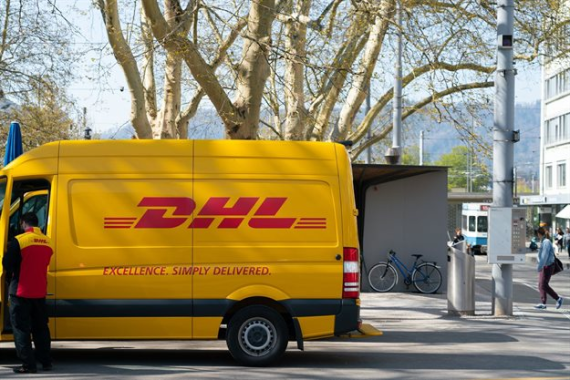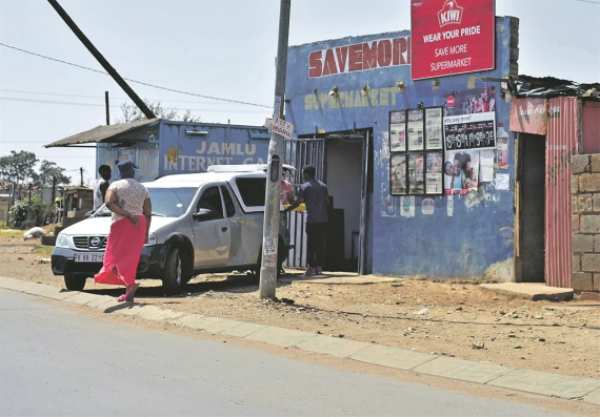Photo by Claudio Schwarz | @purzlbaum on Unsplash
The widespread shift to home deliveries is set to outlast the Covid-19 pandemic. From large retailers and restaurant chains to artisan food producers and small farmers, lockdown in South Africa has seen a surge in online shopping and home delivery ordering, a trend that's expected to turn into a lasting change in consumer behaviour, and this change makes the last mile, which refers to the delivery of a product into the customer's hands, even more critical to customer satisfaction and repeat business.
University of Stellenbosch Business School (USB) senior lecturer in operations management, Tasneem Motala, said that consumer behaviour studies show that the final encounter with a business – which includes the last mile in logistics-speak – is one of the most critical elements in customers’ judgment of their overall shopping experience and decisions on repeat purchases.
“Realistically this means that significant investment in customer acquisition activities, website quality, and offering competitive prices could be partially nullified if a customer has a poor experience when taking final receipt of the goods,” said Motala, who heads up USB’s Postgraduate Diploma in Business Management and Administration (PGDip BMA) programme.
Businesses who responded to lockdown restrictions with agile and flexible delivery solutions have set the bar and increased customer expectations. The businesses who are lagging behind now need to reconfigure supply chain strategies, integrate information technology and strengthen delivery partner relationships in order to continue meeting these new demands and gain competitive advantage, she said.
“In the past few weeks it’s been often said that we ‘should never let a good crisis go to waste’. While the Covid-19 pandemic has resulted in significant economic upheaval locally and globally, businesses can also use it as an opportunity to innovate their operating models and enhance their service offering to acquire and retain customers,” she said.
While customers may have been patient and tolerated shipping delays or inconsistency in delivered products as businesses and individuals all adapted to an uncertain new reality in the first weeks of lockdown, Motala said consumers would now expect businesses to have adapted and be capable of seamless service from ordering to delivery.
Motala outlines aspects that businesses could consider to improve their “last mile” and strengthen competitive advantage:
Outsource or insource the last mile
Outsourcing deliveries has the benefit of reduced delivery costs and greater network reach but the business also relinquishes control of their last mile delivery. Owning the delivery channel allows for greater control over the quality of the customer encounter and providing value-added services such as booking of delivery slots and reassurance on sanitisation and hygiene protocols.
Motala says smaller businesses can capitalise on the #supportlocal sentiment brought about by the pandemic by making changes in their operations and marketing, for example by hiring local delivery drivers.
“A slightly increased (yet still palatable) delivery fee, stating that the increase is due to hiring individuals from the community and that 100% of the delivery fee goes to the driver, may in fact attract new customers to the business.”
For restaurants and takeaway outlets, using their own delivery channels can overcome the obstacle of only being available to those within a certain geographical radius, as is the case with deliveries outsourced to established food delivery services.
Customer loyalty programmes
Motala said that online retailers often reward only first-time customers with discount codes or free delivery as part of their customer acquisition strategy but the new shift in buying habits suggests that now is the time for businesses to consider how to reward loyal, repeat customers.
“Evidence from behavioural science indicates that services should be designed in such a way that pleasurable encounters are broken up, whereas painful encounters are combined. For example, the ‘painful’ experience of paying for delivery may appear less painful if done once-off at the beginning of the year, compared to the current segmented approach of delivery per order,” she said.
A business could consider the Amazon Prime model and introduce a paid loyalty programme with an annual subscription that offers member discounts and free and/or same-day shipping for a certain number of deliveries over the course of a year. This will ensure speed and convenience, both considered order winners in the online environment, and will also delight loyal customers.
She warned though that the business would need to tightly manage shipments to customers willing to pay a premium for expedited service, so as to meet expectations and not disrupt the rest of its operation.
Alternate channels
Alternatives such as curb-side pickup or click-and-collect in store are attractive to both businesses and customers because they reduce last mile delivery costs and pressure on delivery slots. But they need to be well-managed to avoid customers waiting in queues or in their vehicles, which could do more harm than good for the business in the long-term, Motala said.
She suggests taking a lesson from manufacturing to control the process for operational efficiency and customer satisfaction, adopting strategies such as booking time slots for collections and incentives for customers using off-peak collection times.
The visual management used in manufacturing to communicate processes to employees is another useful lesson, she said. Retailers can improve collection processes by clearly marking parking bays and collection areas with visual cues and sending guidelines or simple process maps to customers in advance so that they are “trained” on how to receive their goods smoothly.
Even as lockdown restrictions are relaxed, the risk of super-spreading events in malls and supermarkets makes it likely that consumers will continue preferring contactless shopping and the convenience of home deliveries. Businesses therefore need to ensure that they pay as much attention to their last-mile strategy as to the quality of their product, to guarantee customer satisfaction.
Article Source: https://www.bizcommunity.com/Article/196/458/205316.html





